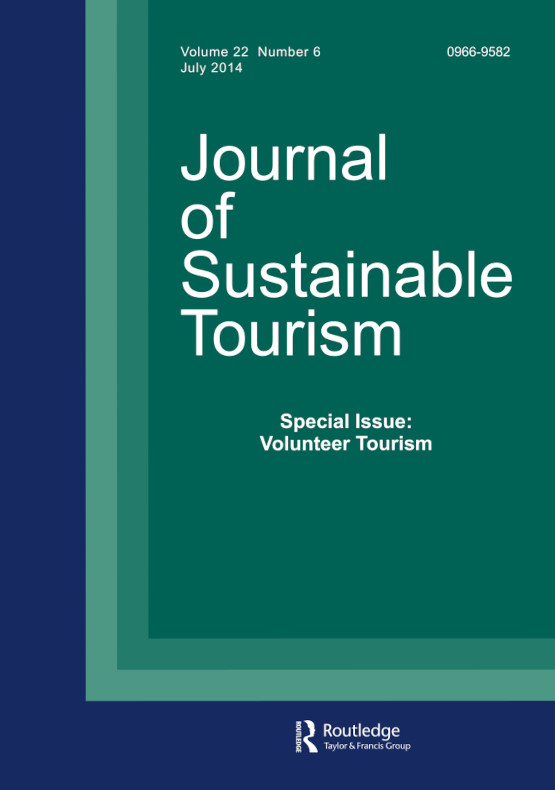Strategic approaches to accessible ecotourism: small steps, the domino effect and not paving paradise
IF 7.8
2区 管理学
Q2 GREEN & SUSTAINABLE SCIENCE & TECHNOLOGY
引用次数: 4
Abstract
Abstract This study examines how ecotourism providers might best serve the growing accessible tourism market. Ecotourism can be considered a special case of accessible tourism insofar as the challenges experienced by people with disabilities to participate in ecotourism, especially in its “harder” variants, may be greater than for general tourism, while the ethical basis to ecotourism also presents constraints to providers in terms of the introduction of assistive equipment and infrastructure into remote and often ecologically sensitive environments. Based on in-depth interviews with accessible ecotourism providers and consultants from several countries, as well as a review of current theoretical frameworks, the paper builds a new conceptual model for advancing research and practice in the area. The main finding is that rather than being hierarchical, the linkages between the constraints and barriers to ecotourism are fundamentally relational. This points to the need to take account of a complex and integrated network of connections when making provision for accessible ecotourism, which in turn favours providers adopting a strategic approach. Three potential strategic approaches are presented: cumulative, in which “small steps” are taken, compromise, which focuses on addressing the “domino effect,” and, comprehensive which aims to achieve universal access while not “paving paradise.”无障碍生态旅游的战略路径:小步、多米诺骨牌效应和不铺路天堂
摘要本研究探讨了生态旅游供应商如何更好地服务于日益增长的无障碍旅游市场。生态旅游可以被认为是无障碍旅游的一个特例,因为残疾人参与生态旅游所面临的挑战,特别是在其“更难”的变体中,可能比一般旅游更大,而生态旅游的伦理基础也对供应商在将辅助设备和基础设施引入偏远和往往生态敏感的环境方面提出了限制。基于对几个国家无障碍生态旅游提供者和顾问的深入访谈,以及对现有理论框架的回顾,本文建立了一个新的概念模型,以推进该领域的研究和实践。研究的主要发现是,生态旅游的制约因素和障碍之间的联系从根本上说是相互关联的,而不是分层的。这表明,在为无障碍生态旅游提供服务时,需要考虑到一个复杂而综合的连接网络,这反过来又有利于供应商采取战略方法。提出了三种潜在的战略方法:累积式,即采取“小步骤”;妥协式,即侧重于解决“多米诺骨牌效应”;综合式,即旨在实现普遍可及,而不是“铺就天堂”。
本文章由计算机程序翻译,如有差异,请以英文原文为准。
求助全文
约1分钟内获得全文
求助全文
来源期刊

Journal of Sustainable Tourism
Multiple-
CiteScore
23.10
自引率
8.90%
发文量
91
期刊介绍:
The Journal of Sustainable Tourism advances critical understanding of the relationships between tourism and sustainable development. The journal publishes theoretical, conceptual and empirical research that explores one or more of the economic, social, cultural, political, organisational or environmental aspects of the subject.
The Journal of Sustainable Tourism encourages critical views, as well as new ideas and approaches in relation to the theory and practice linking tourism and sustainability.
 求助内容:
求助内容: 应助结果提醒方式:
应助结果提醒方式:


